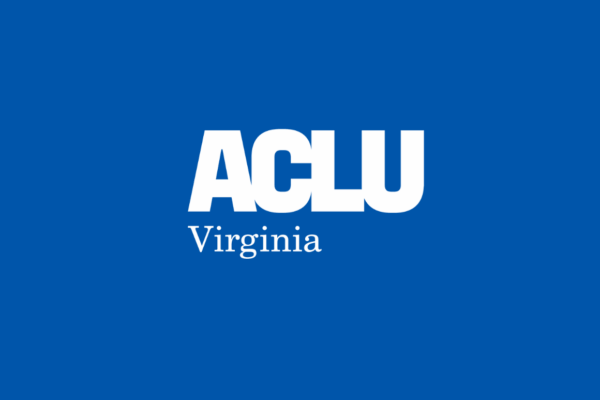Richmond, VA– In recognition of Equal Pay Day (April 28) 2009, the American Civil Liberties Union of Virginia, the American Association of University Women of Virginia, and the Virginia Organizing Project are urging Senators Mark Warner and Jim Webb to support the Paycheck Fairness Act.
The Paycheck Fairness Act, which overwhelmingly passed the House of Representatives on a vote of 256-163 earlier this year, would strengthen the Equal Pay Act, a flawed and ineffective law passed in 1963 to combat wage discrimination against women.
Forty-five years after passage of the Equal Pay Act, it will take a woman all of 2008 and nearly 4 more months into 2009 (until April 28), to earn the same amount that a man earned in 2008 alone. The statistics are even worse for women of color.
“When the Equal Pay Act was passed in 1963, women earned 59% of what men were paid for doing the same job,” said Kent Willis, Executive Director of the ACLU of Virginia. “Although the wage gap has shrunk to where women now earn 78% of what men earn, at the current rate of progress, it will be another 45 years before the gap is eliminated entirely. It’s time that we take stronger measures to bring about pay equity for women.”
“Pay disparities force families to live on less than they rightfully deserve,” said Janice “Jay” Johnson, Chairperson of the Virginia Organizing Project. “In these times of tight family budgets, Congress can help households dependent on single mothers or two-wage earners by putting effective tools in place to remedy wage discrimination.”
“The Lilly Ledbetter Fair Pay Act, signed into law by President Obama in January, was a big step toward righting the wrongs of pay disparity,” said Laura Wimmer, Co-President of the AAUW of Virginia. “Named for a woman who for nearly 20 years was paid far less than her male co-workers with the same job and who fought for another 10 years to expose unfair pay practices, the Lilly Ledbetter Fair Pay Act restored the long-standing interpretation of civil rights laws and Equal Employment Opportunity Commission policies allowing workers to challenge their discriminatory paychecks. Together with the Ledbetter Law, the Paycheck Fairness Act can help create a climate where pay discrimination is not tolerated. It would prohibit employer retaliation against workers who inquire about their employers’ wage practices or disclose their own wage—a provision that would have helped Lilly Ledbetter.”
The Paycheck Fairness Act requires employers to demonstrate that wage differences between men and women doing the same work actually stem from factors other than sex. It also bans retaliation against workers who have simply asked about wage practices or told someone their wages. It gives women the same remedies for gender discrimination that are in place for race and national origin discrimination.
Under this legislation, the federal government would have more tools to stop unlawful pay disparities. Staff at the U.S. Equal Employment Opportunity Commission would receive additional training, and the U.S. Department of Labor would establish new programs to educate employers and employees about best practices and to collect wage-related data.
For more information about the Paycheck Fairness Act, please read below.
Contacts:
Kent Willis, ACLU of Virginia Executive Director, 804-644-8022 Joe Szakos, Virginia Organizing Project Executive Director, 434-984-4655. Laura Wimmer and Dianne Blais, AAUW of Virginia Co-Presidents, lwim@aol.com or dianneblais@aol.com.
About The Paycheck Fairness Act
The Equal Pay Act of 1963 requires that men and women be given "equal pay for equal work" in the same place of business or establishment. Unfortunately, while its goals are critically important, the Equal Pay Act has not been able to achieve its promise of closing the wage gap because of limited enforcement tools and inadequate remedies.
The Paycheck Fairness Act would update the Equal Pay Act by taking several important steps toward remedying pay discrimination, including:
· requiring employers to demonstrate that wage differentials between men and women holding the same position and doing the same work stem from factors other than sex. The legislation clarifies acceptable reasons for differences in pay by requiring employers to demonstrate that wage gaps between men and women doing the same work have a business justification and are truly a result of factors other than sex.
· prohibiting retaliation against workers who inquire about their employers' wage practices or disclose their own wages. It is important to note, however, that employees with access to colleagues' wage information in the course of their work, such as human resources employees, may still be prohibited from sharing that information.
· permitting reasonable comparisons between employees within clearly defined geographical areas to determine fair wages.
· strengthening penalties for equal pay violations. The bill's measured approach levels the playing field by ensuring that women can obtain the same remedies as those subject to discrimination on the basis of race or national origin.
· authorizing additional training for EEOC staff to better identify and handle wage disputes. It would also require the U.S. Department of Labor to reinstate important activities, such as directing educational programs to assist women in the workforce, providing technical assistance to employers, recognizing the achievements of businesses that address the wage gap, collecting wage-related data, and conducting and promoting research about pay disparities between men and women.
Stay Informed
Sign up to be the first to hear about how to take action.
By completing this form, I agree to receive occasional emails per the terms of the ACLU’s privacy statement.
By completing this form, I agree to receive occasional emails per the terms of the ACLU’s privacy statement.

